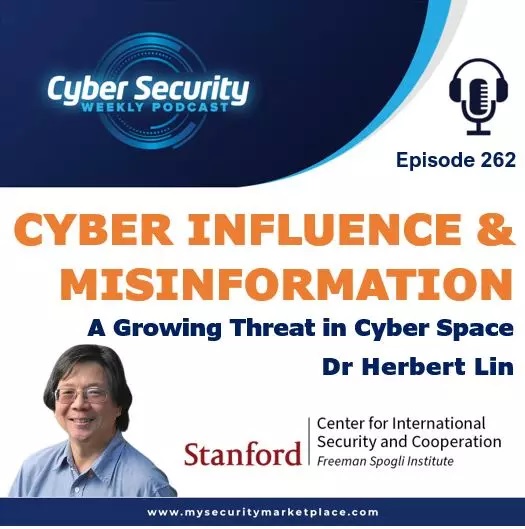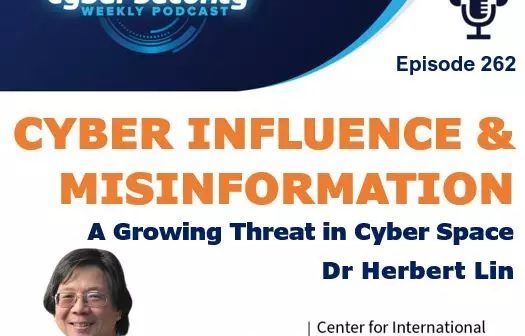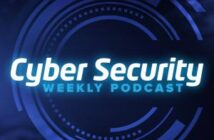
Interview by Jane Lo, Singapore Correspondent with Dr. Herbert Lin, Senior research scholar, Cyber Policy and Security, Center for International Security and Cooperation; Hank J. Holland Fellow, Cyber Policy and Security, Hoover Institution; and Elected Fellow, American Association for the Advancement of Science.
In addition to his positions at Stanford University, Dr. Lin is Chief Scientist, Emeritus for the Computer Science and Telecommunications Board, National Research Council (NRC) of the National Academies, where he served from 1990 through 2014 as study director of major projects on public policy and information technology, and Adjunct Senior Research Scholar and Senior Fellow in Cybersecurity (not in residence) at the Saltzman Institute for War and Peace Studies in the School for International and Public Affairs at Columbia University; and a member of the Science and Security Board of the Bulletin of Atomic Scientists. He served on President Obama’s Commission on Enhancing National Cybersecurity.
Prior to his NRC service, he was a professional staff member and staff scientist for the House Armed Services Committee (1986-1990), where his portfolio included defense policy and arms control issues. He received his doctorate in physics from MIT.
Dr. Lin’s research interests relate broadly to policy-related dimensions of cybersecurity and cyberspace, and he is particularly interested in and knowledgeable about the use of offensive operations in cyberspace, especially as instruments of national policy.
Avocationally, Dr. Lin is a long-time folk and swing dancer and a poor magician. Apart from his work on cyberspace and cybersecurity, he is published in cognitive science, science education, biophysics, and arms control and defense policy. He also consults on K-12 math and science education.
In this podcast, Dr Lin discussed cyber influence and the modern phenomenon of misinformation, offering historical perspectives and insights into how technological tools are leveraged in today’s misinformation campaigns.
He emphasised the key differences between cyber operations and cyber enabled information operations, where the former (e.g. ransomware) targets computer systems, the latter (misinformation) targets our hearts and minds. Giving examples observed in the U.S., he noted challenges with implementing effective mitigation measures against misinformation whilst preserving the free flow of ideas.
He also addressed some commonly asked questions for deploying misinformation and information warfare as a psychological operation from a national security perspective.
With non-stop advances in technology and no-shortage of opportunities to sow misinformation, Dr. Lin also shared his thoughts on the evolution of the threat landscape.



